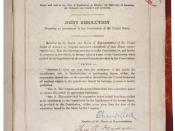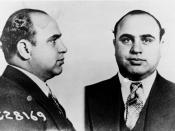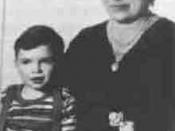What would it be like to live in a world without alcohol? Would it be cleaner? Would there be less car accidents? Would there be fewer violent crimes? Would there be less homeless people? On January 16, 1920 the eighteenth amendment went into effect. This amendment banned alcohol. Within the next few pages I will tell you some of the history behind this amendment, I will tell you about Dillon verses Gloss when this amendment almost go thrown out, and I will also tell you about two of the people who violated this amendment, Bugsy Siegel and Al Capone, and ended up in court.
There have always been people trying to get alcohol banned in America. In 1851 the state of Maine banned alcohol. Around this time many other people started to band together to create groups to get alcohol banned. In 1869 the Prohibition Party was formed. This party wanted a nationwide ban of liquor.
This party was never a major player in national election, but it pushed hard to get alcohol banned. Another group that wanted alcohol banned was the Woman's Christian Temperance Union. This group figured that if they could get women the right to vote that alcohol would be banned because many of the people who suffered the most from alcohol were women who were dependent upon their husbands. The last of the major groups who wanted alcohol banned was called the Anti-Saloon League. This league started in 1893 in Ohio. They trained people to recruit new members and they started a monthly magazine called The American Issue. These groups spent many years campaigning to get alcohol banned. On December 18, 1917 Congress passed the Eighteenth Amendment. It was adopted on January 16, 1919. Congress passed the Volstead Act to enforce the Prohibition amendment in October...


